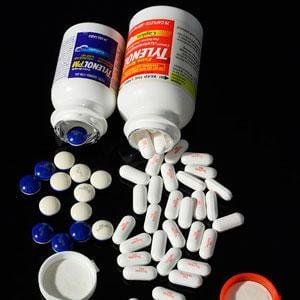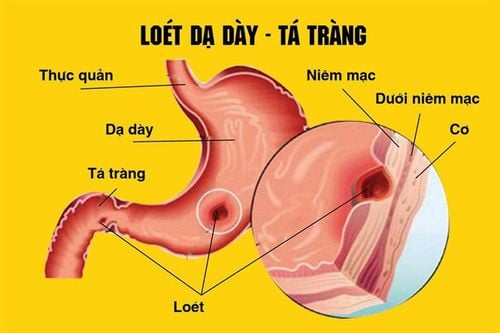1. What is Elitan?
What is Elitan? Elitan 10mg is a medication used to prevent and treat nausea and vomiting in patients who have undergone surgery or chemotherapy. Its active ingredient is metoclopramid hydrochloride at a dose of 10mg.
Pharmacodynamics: It enhances gastrointestinal motility. Metoclopramide is an anti-dopaminergic drug that blocks dopamine receptors, preventing nausea by inhibiting dopaminergic receptors.
Pharmacokinetics:
- Absorption: When taken orally, it is rapidly absorbed through the gastrointestinal tract, with about 50% absorption.
- Metabolism: Metoclopramide is minimally metabolized.
- Distribution: Metoclopramide is widely distributed throughout the body, with a volume of distribution of 2.2 to 3.4 L/kg. It has low protein binding and can cross the placenta and be excreted in breast milk.
- Excretion: Metoclopramide is primarily excreted in the urine as free drug or sulfonyl conjugates. The elimination half-life is 5-6 hours and increases in patients with liver or kidney impairment.
Formulation: Injectable solution
Packaging: Box of 2 strips x 5 vials of 2ml each
2. Indications and contraindications of Elitan 10mg
2.1. Indications
Elitan 10mg is prescribed for different patient groups based on specific conditions:
For adults:
- Helps prevent nausea and vomiting after surgery.
- Used to prevent nausea and vomiting in cancer patients undergoing chemotherapy.
Additionally, the medication helps treat symptoms of nausea and vomiting, including cases of nausea and vomiting due to acute migraines.
For children aged 1 - 18 years: Elitan 10mg is a second-line choice to prevent and treat nausea and vomiting caused by chemotherapy, as well as post-surgery.
2.2. Contraindications
Elitan 10mg is contraindicated in these cases:
- Pregnant women in their third trimester and breastfeeding mothers.
- Patients allergic to any components of Elitan 10mg.
- Patients with gastrointestinal bleeding, mechanical bowel obstruction, or gastric-intestinal perforation, as Elitan 10mg can increase intestinal motility.
- Patients with suspected upper urinary tract tumors, as Elitan 10mg may cause hypertensive crises.
- Patients with a history of movement disorders due to antipsychotic drugs or Metoclopramide.
- Patients suffer from epilepsy with progressively increasing frequency and severity.
Patients with Parkinson's disease. - Infants under 1 year old should not use it due to the risk of extrapyramidal symptoms.
- Patients with a history of methemoglobinemia due to Metoclopramide or NADH-cytochrome b5 reductase deficiency.
3. Dosage and usage of Elitan 10mg
3.1. Dosage
3.2. Usage
Elitan 10mg can be administered via intravenous injection or intramuscular injection. In these cases, a doctor or nurse is responsible for the procedure.
3.3. Management of overdose
In case of an overdose, monitor for symptoms such as:
- Extrapyramidal symptoms.
- Decreased level of consciousness, dizziness.
- The patient may experience confusion or hallucinations.
- Risk of cardiac arrest or respiratory failure.
If extrapyramidal symptoms occur, metoclopramid should be discontinued. Treatment for symptoms may include benzodiazepines for children and anticholinergic drugs used to treat Parkinson's disease for adults. Continuous monitoring and supportive care for cardiovascular and respiratory functions should be provided based on the patient's clinical condition. Diphenhydramine 50mg intramuscularly or benztropine 1-2 mg intramuscularly may be used.
Elitan 10mg can be administered via intramuscular or slow intravenous injection over at least 3 minutes. The dosage varies depending on the patient and specific condition.
For adults:
- Prevention of post-surgery nausea and vomiting: Recommended dose is 10mg.
- Nausea and vomiting in cancer patients undergoing chemotherapy: Recommended dose is 10mg, but should not exceed 3 times/day.
- Severe migraine-related nausea or vomiting: Recommended dose is 10mg per dose, up to 3 times/day. Maximum recommended dose: 30 mg/day or 0.5 mg/kg/day.
For children:
- Recommended dose: 0.1-0.15mg/kg, with a maximum of 0.5mg/kg/day.
- Maximum frequency: Up to 3 times/day.
- Administer via intravenous injection.
Special individuals:
Elderly patients: Adjust dose based on overall health and liver function monitoring.
Patients with kidney failure:
- End-stage (creatinine clearance ≤15 ml/min): Consider reducing the daily dose by 75%.
- Moderate to severe impairment (creatinine clearance 15-60 ml/min): Consider reducing dose by 50%.
Patients with liver impairment: Reduce dose by 50% for severe liver impairment.
Duration of treatment: Elitan 10mg should be administered via injection for the shortest duration necessary while ensuring effective treatment. Subsequently, it can be prescribed orally or rectally.
- Preventing delayed nausea and vomiting due to chemotherapy: Maximum duration is 5 days.
- Treating postoperative nausea and vomiting: Maximum duration is 48 hours.
4. Side effects when using Elitan 10mg
During the use of Elitan 10mg, some side effects may occur, including:
- Extrapyramidal symptoms: Risk of muscle stiffness or acute movement disorders.
- Symptoms may include parkinsonism and tardive dyskinesia.
- Dizziness: Feeling of lightheadedness.
- Decreased level of consciousness: Drowsiness, confusion, and hallucinations.
5. Precautions when using Elitan 10mg
During the use of Elitan 10mg, patients should be aware:
- If the patient has prolonged nausea and vomiting, they should seek medical attention to rule out potential underlying conditions such as brain irritation.
- Be cautious with patients being treated with central nervous system-acting drugs like epilepsy.
- Extrapyramidal symptoms may occur, which are common in children, young adults, and patients on high doses of Elitan.
- The interval between doses should be at least 6 hours, even if the patient vomits or does not consume the full dose to avoid overdose.
- Prolonged use of Elitan may cause tardive dyskinesia, especially in elderly patients. Therefore, monitor the patient's condition and avoid extending treatment beyond 3 months.
- Elitan may exacerbate Parkinson's disease symptoms.
Additionally, some cases of methemoglobinemia related to NADH-cytochrome B5 reductase deficiency have been reported. If a patient exhibits symptoms of methemoglobinemia, immediate treatment with methylene blue and appropriate supportive measures should be administered. Furthermore, Elitan 10mg may cause serious cardiovascular reactions after injection, especially intravenous injection, including cardiac arrest, prolonged QT interval, arrhythmias, and severe bradycardia.
6. Drug interactions
- Avoid combining Elitan 10mg with levodopa or dopamine agonists.
- Do not combine with alcohol, as it increases the risk of central nervous system depression caused by metoclopramide.
- Anticholinergic drugs and morphine derivatives affect gastrointestinal motility.
- Central pain relievers, including morphine derivatives, anxiolytics, and histamine H antagonists, enhance psychiatric effects.
- Metoclopramid increases gastrointestinal motility, affecting the absorption of some other drugs.
- Anxiolytics: Elitan increases the effects of anxiolytics and causes extrapyramidal symptoms.
- Serotonergic drugs increase the risk of serotonin syndrome.
- Digoxin: Increases the availability of digoxin. Close monitoring of digoxin blood levels is required when co-administered.
- Cyclosporin: Increases the availability of cyclosporin.
- Mivacurium and suxamethonium.
- Drugs that inhibit CYP2D6.
Patients should store Elitan 10mg in a cool, dry place. Keep the medication below 30°C and away from direct sunlight. Store the drug out of reach of children and pets.
Follow the Vinmec International Hospital website to get more health information, nutrition, and beauty tips to protect yourself and your loved ones.
To arrange an appointment, please call HOTLINE or make your reservation directly HERE. You may also download the MyVinmec app to schedule appointments faster and manage your reservations more conveniently.
To arrange an appointment, please call HOTLINE or make your reservation directly HERE. You may also download the MyVinmec app to schedule appointments faster and manage your reservations more conveniently.








